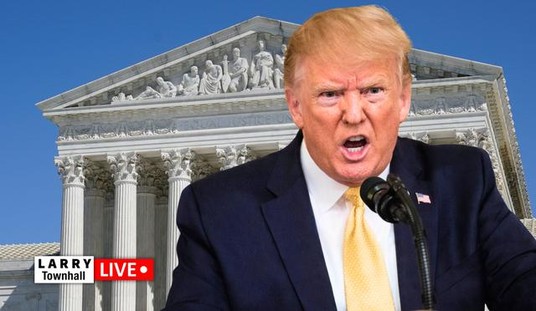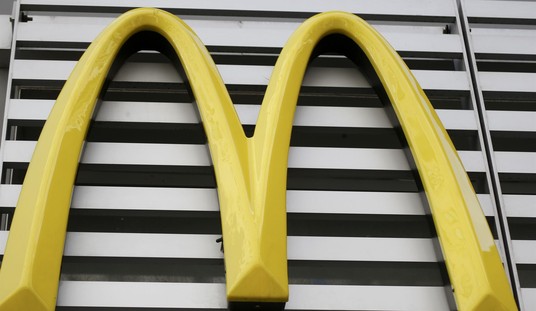There’s a lot of heat and unfortunately not enough light being produced online with respect to the recent decision by Comcast to cut off its free peering deal with Level 3, thanks to the throwing around of the name Netflix. People like Netflix and want to know what’s going on. I even have a Netflix streaming-only account. So I’ll try to explain here what’s going on, why it matters, and why we need to keep the government from intervening in favor of Level 3 and Netflix.
Firstly, I know what the question is that many will need answered: What is peering? To understand what peering is, we must first remember that the Internet is a series of networks. We all have our networks at our homes and businesses. Those networks connect to ISPs. Those ISPs then connect their networks to each other and to ‘backbone’ providers. Those backbone providers also connect to each other. The further along the chain we go, the more of the Internet’s functioning depends on those connections. Backbone providers would not have a useful service unless their networks gave access to the entire Internet.
So what the big boys do is create peering agreements with each other, where they agree to connect to each other for free, on the grounds that the data will travel both ways, benefit both sides, and create value for all involved. Firms have to be careful though to ensure that their peers are actually trading equally and fairly, creating benefit for all instead of just leeching. That is why ISPs make contracts that specify how the peerings work, and document their policies and practices of peering. Level 3 spells it out and so does Comcast.
So what happened that was the big deal?
Comcast ended its peering agreement with Level 3. So much of the coverage online is breathlessly biased against Comcast on this (see MSNBC for an example), but it really is a simple business decision, fully in line with the principles and policies they published all along and that were surely documented in any formal deal between Comcast and Level 3. Comcast directly says more on the matter.
Note that this termination is not unprecedented. Back in 2005 Level 3 did the same thing to Cogent that Comcast did to Level 3, and for the exact same reasons. Sureel Choksi, then an executive VP at Level 3, said at that time:
…In order for free peering to be fair to both parties, the cost and benefit that parties contribute and receive should be roughly the same. The previous arrangement with Cogent was a contractual agreement that, when entered into, met that criteria.
“Over the last six months, our operating subsidiary has assessed all of our relationships to determine whether or not settlement-free peering is still appropriate. We determined that the agreement that we had with Cogent was not equitable to Level 3. There are a number of factors that determine whether a peering relationship is mutually beneficial. For example, Cogent was sending far more traffic to the Level 3 network than Level 3 was sending to Cogent’s network. It is important to keep in mind that traffic received by Level 3 in a peering relationship must be moved across Level 3’s network at considerable expense. Simply put, this means that, without paying, Cogent was using far more of Level 3’s network, far more of the time, than the reverse. Following our review, we decided that it was unfair for us to be subsidizing Cogent’s business.”
All of the above is precisely what Comcast would and does say about its peering arrangement with Level 3, only it’s Level 3 that’s the leech. So, Comcast did what Level 3 has proven it would do in the reverse situation, and Comcast terminated the deal.
So the next question is, what does Netflix have to do with it? Well, that’s easy: the reason Comcast saw an imbalance in the traffic with Level 3 was that Comcast users were streaming Netflix movies via Level 3, who had just made a new deal with Netflix to handle that traffic. Essentially, Netflix and Level 3 made their deal in the hopes that they could max out on Level 3’s peering agreements and ship off all their traffic without having to pay for it. Comcast, having a bottom line to watch out for, saw this and pulled the plug. Note that Comcast isn’t charging its home users extra to see Netflix. There is no toll booth. Comcast is just saying that if Level 3 wants to have an imbalanced traffic relationship with Comcast that they’re going to have to pay.
Level 3 got greedy. Level 3 went after Netflix without looking to keep its traffic balanced, and expected to spread those costs out to its peers. That’s not fair to anyone, and if they got away with it the result would truly mean higher Internet costs for all of us at home, including all Comcast home and business users.
Investors are high on Netflix and there’s no reason to think they shouldn’t have to carry their own weight. Ultimately I believe the burden is on them to spread out their traffic among a number of providers to ensure that the peering arrangements don’t continue to break down in this way. Or alternately they could bypass the middlemen and deal directly with the Comcasts of the Internet themselves and get dedicated deals going to ensure that paying Netflix users with paid Internet connections can get good video streams going.
Unfortunately instead of letting the market sort this out, forcing Netflix to innovate and allowing Level 3’s business partners to demand fairness, the FCC might act to impose broad bans on new business models and instead attempt to socialize the Internet backbone. Note that this is different from the possibility in December of broad action against ISPs under the banner of Net Neutrality. This a separate set of regulations, though rhetorically the proponents may cite the same ‘principles.’
It turns out Digital Society has been covering this for a while. Here’s a post from almost one year ago which, in the models George Ou discusses, is directly on point to the issues Netflix faces today. Ou returned to the topic last month and while it discusses Google, insert Netflix where it says Google or Content Provider to follow along.
The Internet is a marvel of engineering and overall does a remarkably great job at shipping vital communications around the world in a timely manner. Seriously: at no other point in history has data gone back and forth from virtually any two populated points on the globe with such little cost, redundant reliability, and outstanding speed. However new services like Netflix streaming push the limits of the network.
In the past we started out sending around text-only data. Then we started shipping images. Later we started including short video clips and animations. Over time the size and quality of those videos have gotten bigger and better. Netflix is at the higher end of the size and quality scales, but is pushed way outside the envelope in the sheer volume of video it puts out. They’re approaching one quarter of the Internet traffic at night in America.
Netflix must innovate to ensure they can continue to do this and keep their business model alive while being a good Internet citizen. Their business partners online must be able to do the same as well in order to deal with the flood of movies. FCC must not intervene and interfere with the necessary engineering and business innovation needed here.













Join the conversation as a VIP Member